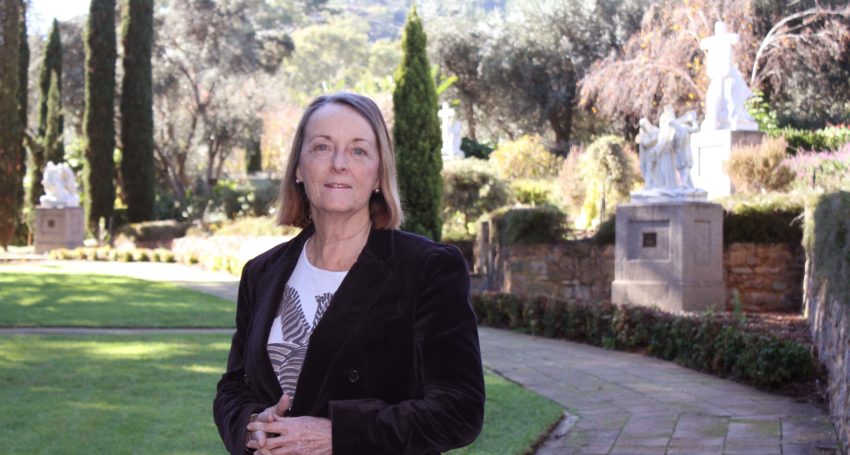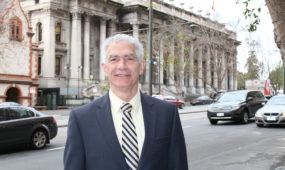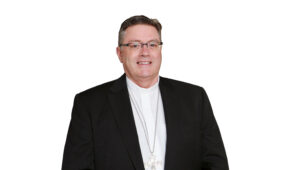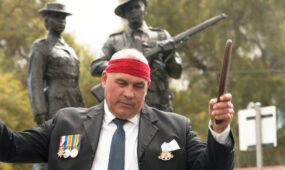Imprison doctors who leave patients in pain: international ethicist
News
Legislation enabling doctors to participate in ending their patients’ lives via euthanasia or assisted suicide is not the right solution for terminally ill people, but any doctor who leaves someone in pain should be “put in gaol”, according to world-renowned ethicist and opponent of euthanasia Professor Margaret Somerville AM.

“I would make it a criminal offence,” the Adelaide-born defender of human life and dignity told The Southern Cross this week, explaining there were many options for pain relief for terminally ill people through “good, easily accessible palliative care”.
Back in Adelaide as the guest speaker at a public lecture presented by the Australian Confraternity of Catholic Clergy, Prof Somerville used the forum to outline the cases for and against legalising euthanasia, and to clear up some of the misconceptions.
Advertisement
“The pro-euthanasia advocates are intentionally confusing euthanasia and physician-assisted suicide with interventions that are not euthanasia or assisted suicide, and then arguing that all should be acceptable and legal,” she said.
“Turning off a respirator, a life support system, refusal of treatment are not euthanasia or assisted suicide because the person dies a natural death from their underlying illness. Everyone has the legal right to say they don’t want treatment.
“Fully adequate pain management – even if there is a risk that it could shorten your life – provided it is necessary to relieve the pain, is not euthanasia.
“Pro euthanasia advocates argue that to allow assisted suicide or lethal injections we are not making any major change, all we are doing is extending what we have already agreed to… it is just another incremental step on the path we have already taken.
“But legalising euthanasia would be a seismic shift in our most important shared values, especially that of respect for life. It is a revolution, not an evolution, as pro-euthanasia advocates argue.”
Advertisement
Prof Somerville, who spent nearly 40 years working in Montreal, said she was disappointed when in 2015 assisted suicide was legalised in Quebec and in a very short time it seemed to have become “normalised” – with many more cases (400 in the first year) than the anticipated 100. She also cited cases in the Netherlands where patients were requesting “death on demand”, even if they didn’t have a terminal illness but wanted to end their life.
Under Catholic Church teachings, Prof Somerville said the primary reason for Catholics being against physician-assisted suicide and euthanasia was that it is “inherently wrong to intentionally take a human life”.
…once you are labelled Catholic, well your views are dismissed.
“We can say we object to it on that basis, but a large percentage of the community don’t accept that, so then you have to show them why it is a very bad idea. That comes down to all the risks and harms of legalising outweighing any possible benefits, which can be obtained in other ways if you have available good, easily accessible palliative care.”
Taking up the post as Professor of Bioethics at Notre Dame University in Sydney last year, Prof Somerville is no stranger to the heated arguments that often arise when euthanasia is mentioned: “I almost had a row with the taxi driver, a young man, on the way here about it,” she said.
Related Story
 News
News
Fighting assisted suicide at all costs
But she tries to ensure religion does not become the focus of the exchange, because “once you are labelled Catholic, well your views are dismissed”.
“That’s why I don’t argue from a religious base. I’ve been writing about it (euthanasia) for 35 years and I’ve seen many new angles and new arguments in that time.
“My latest approach is to argue for following the tradition of Aboriginal and Torres Strait Islander people, when they say they honour the Elders, past and present – they are honouring their received wisdom.
“In Canada, similarly, the First Nations people talk about looking back seven generations, looking forward seven generations and then looking at the present to decide what we ought to do in making important decisions affecting everyone. Looking back engages our human memory (history), looking forward activates our human imagination and gives us access to the warnings they carry.
“So if you look back seven generations, what happened when killing people with disabilities was legalised? To look forward ask yourself, how do you think your great great grandchildren will die if we legalise euthanasia now? We have a responsibility not to leave them a society in which no reasonable person would want to live.
Prof Somerville said overall, people needed to have hope.
“And that requires ‘making hope’ just as we have to ‘make peace’. Hope is generated by a sense of connection to the future and is the oxygen of the human spirit – without it our spirit dies.
“Helping dying people to feel they are leaving a legacy connects them to the future and brings them hope. It’s our responsibility to enable that, rather than helping them to end their lives.”








Comments
Show comments Hide comments